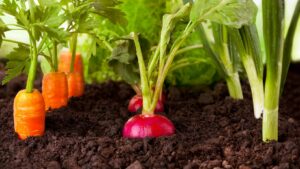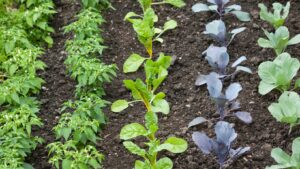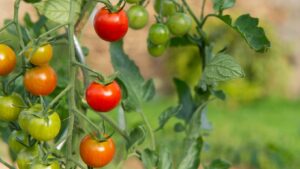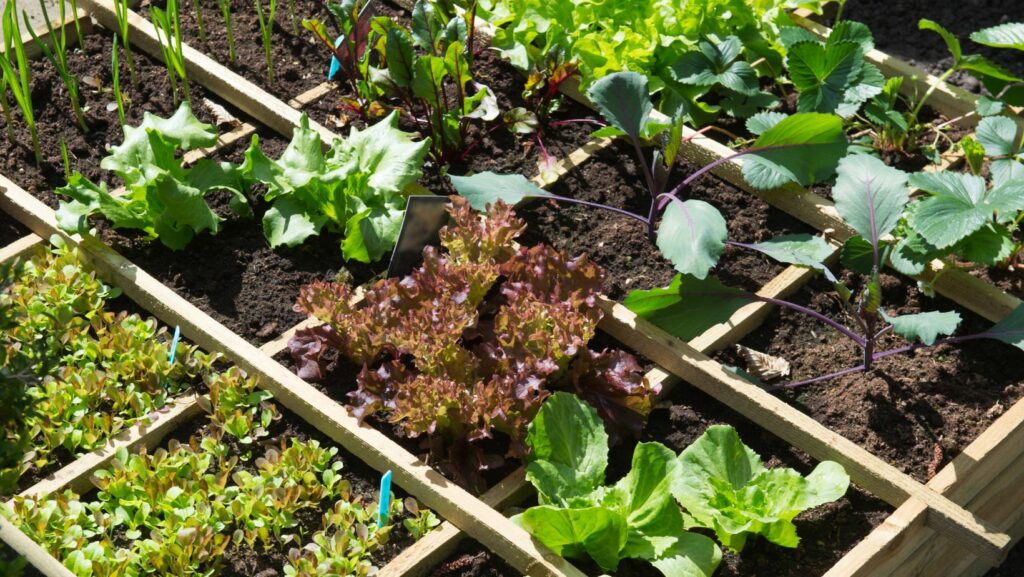Imagine turning your backyard into a vibrant oasis of fresh, organic vegetables. Vegetable gardening isn’t just a hobby; it’s a lifestyle that fosters health, sustainability, and a deep connection with nature. This article will explore innovative ideas to transform your garden into a thriving vegetable haven.
Vegetable Gardening Ideas
 Vegetable gardening stands as a rewarding activity, combining health benefits and environmental sustainability with the joy of nurturing nature. This section delves deeper, shedding light on the benefits of growing your vegetables and the critical factors that dictate a successful garden.
Vegetable gardening stands as a rewarding activity, combining health benefits and environmental sustainability with the joy of nurturing nature. This section delves deeper, shedding light on the benefits of growing your vegetables and the critical factors that dictate a successful garden.
Plucking fresh vegetables from your backyard garden outweighs buying them from a supermarket. Home-grown vegetables typically surpass commercially grown ones in taste, freshness, and nutritional value. The benefits extend beyond the taste buds and nutrition, enhancing health, saving money and promoting sustainability.
- Health Improvement: Growing vegetables at home enables control over the growing conditions, use of pesticides, and harvesting time. This practice yields produce rich in nutrients—vitamins, minerals, and antioxidants—thereby promoting health and wellness.
- Money-Saving: Investing in seedlings, soil amendments, and irrigation can offer impressive returns. As your garden begins producing, it reduces dependence on supermarket produce, effectively saving money over time.
- Sustainability: Home vegetable gardens contribute to sustainability by minimizing the carbon footprint associated with transporting produce. Additionally, gardening can improve soil health and biodiversity in your yard.
Key Factors for Successful Gardening
A flourishing vegetable garden demands more than inserting seeds into soil. Several key factors must be considered, such as choosing the right location, ensuring proper soil health, and utilizing effective gardening techniques.
- Location Selection: A suitable location receives at least six hours of sunlight daily. Vegetable plants need plenty of sun for photosynthesis, ensuring healthy growth and high yield.
- Soil Condition: Quality soil serves as the foundation for any successful garden. Ideal soil for vegetables is rich in organic matter and drains well. Regular soil testing helps maintain nutrient balance and pH level.
- Gardening Techniques: Effective gardening techniques such as crop rotation, companion planting, and regular watering can play a significant role in realizing a fruitful harvest.
Planning Your Vegetable Garden
 Transforming a barren lawn or an unused balcony into a bustling vegetable garden requires careful planning. This planning stage encompasses two crucial elements: choosing the right location and preparing the soil adequately.
Transforming a barren lawn or an unused balcony into a bustling vegetable garden requires careful planning. This planning stage encompasses two crucial elements: choosing the right location and preparing the soil adequately.
The geographical position of the vegetable garden plays a pivotal role in agricultural success. Sunlight is one of the most substantial determinants of plant health. Therefore, it’s crucial to select a place that receives a minimum of six hours of sunlight daily. For instance, crops like tomatoes, cucumbers, and peppers thrive in locations exposed to ample sunlight.
Additionally, evaluate the gradient of the land. Flat or gently sloping lands enhance water drainage, preventing accumulation and subsequent plant diseases, while elevated lands can be subject to water deprivation..
Overall, evaluating crucial factors such as sunlight availability, land gradient, and wind direction greatly impact the successful growth of home-grown vegetables.
Soil Preparation Tips
 Soil anchors plants and supplies essential nutrients for their growth. Great yields start from the ground up. Hence, adequate soil preparation is of the essence. Start by examining the pH levels of the soil, optimal for plant growth is a neutral or slightly acidic soil pH, generally between 6 and 7.5.
Soil anchors plants and supplies essential nutrients for their growth. Great yields start from the ground up. Hence, adequate soil preparation is of the essence. Start by examining the pH levels of the soil, optimal for plant growth is a neutral or slightly acidic soil pH, generally between 6 and 7.5.
Till the soil to break up large clumps, making it easy for plant roots to navigate. Incorporate organic matter such as compost or manure to boost the nutrient content. It’s crucial not to overlook the importance of soil composition. For example, sandy soils drain rapidly but may not retain enough nutrients, while clay soils tend to retain water.
Establishing a healthy soil environment fosters robust vegetable growth, enhances crop yields, and improves overall plant health. Proper soil preparation thus serves as a fundamental aspect of successful vegetable gardening.
Innovative Vegetable Gardening Ideas
Having grounded the importance of sunlight, soil quality, and planning for cultivating a successful vegetable garden, it’s right to examine some innovative gardening ideas. These methods not only maximize your garden’s output but also make efficient use of your gardening space. From vertical gardening techniques to container and raised bed gardening, these innovative ideas add a touch of creativity to your vegetable garden.

